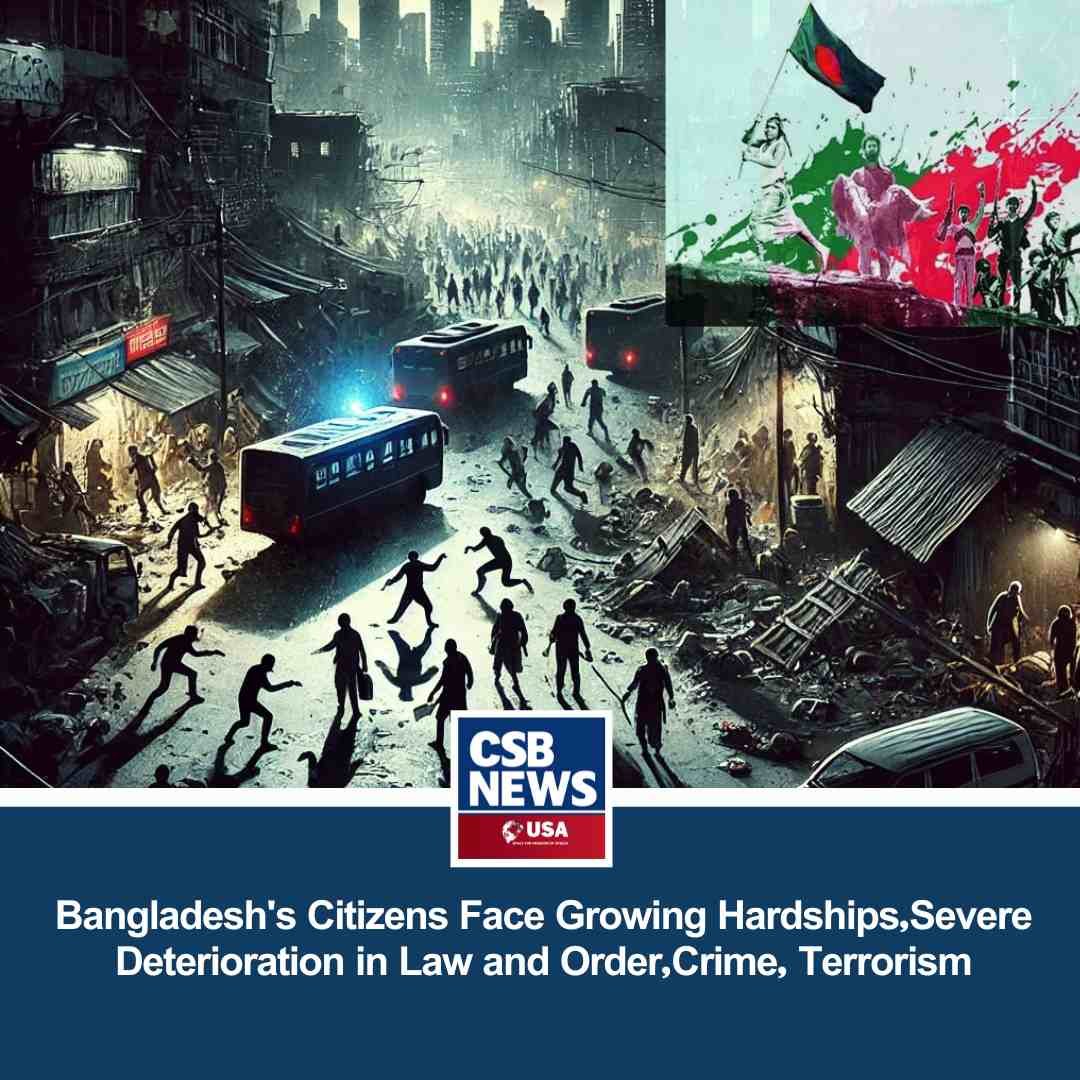Severe Deterioration in Law and Order: Crime, Terrorism, and Economic Struggles in Bangladesh
Bangladesh's Citizens Face Growing Hardships Amid Rising Insecurity and Economic Crisis
The law and order situation in Bangladesh has taken a sharp downturn, leading to widespread anxiety and distress across the country, especially in the capital, Dhaka. Public incidents of theft, robbery, extortion, assaults, murder, and rape are increasingly common, raising serious concerns about the safety and well-being of citizens. The police headquarters reported a total of 522 murders nationwide between September and October, along with 25,456 cases involving various crimes such as rape, robbery, theft, and armed violence.
The rise in criminal activities is not limited to violent crimes but extends to extortion and other illegal practices carried out by notorious criminals, further exacerbating public distress. These escalating criminal activities have sparked fears among the general population, who are already dealing with numerous hardships.
Advocate Humayun Kabir Bhuiyan, General Secretary of the Consumers Association of Bangladesh (CAB), highlighted the severe impact of these issues, stating in an interview with Bangladesh Protidin, "People are enduring immense suffering. These problems are becoming more severe every day. On one hand, prices of basic goods are skyrocketing, and on the other, there is a serious shortage of cash in the banks. Many customers are unable to withdraw cash from the banks."
This cash crisis is not limited to physical cash withdrawals. Transactions through Real-Time Gross Settlement (RTGS) and Bangladesh Electronic Funds Transfer Network (BEFTN) systems are also being affected due to the severe lack of liquidity. The disruptions in these financial systems have made it even more difficult for people to manage their daily expenses, contributing to the widespread hardships faced by the public.
The effects of inflation have also been severely felt, as the purchasing power of the population has diminished. As a result, consumer spending has decreased significantly, which is negatively impacting the economy. Business owners, particularly those involved in importing essential goods, are struggling to keep their businesses afloat as the combination of high inflation and limited access to capital is making it difficult to operate effectively. Many importers of everyday products are facing almost a complete shutdown of their businesses due to these challenges.
These ongoing economic and security issues are a direct result of the government's flawed policies, which have intensified pressure on both businesses and the general public. With the continued rise in crime, economic instability, and rising inflation, the ordinary people of Bangladesh are finding it increasingly difficult to make ends meet, leading to an overwhelming sense of uncertainty and distress.










